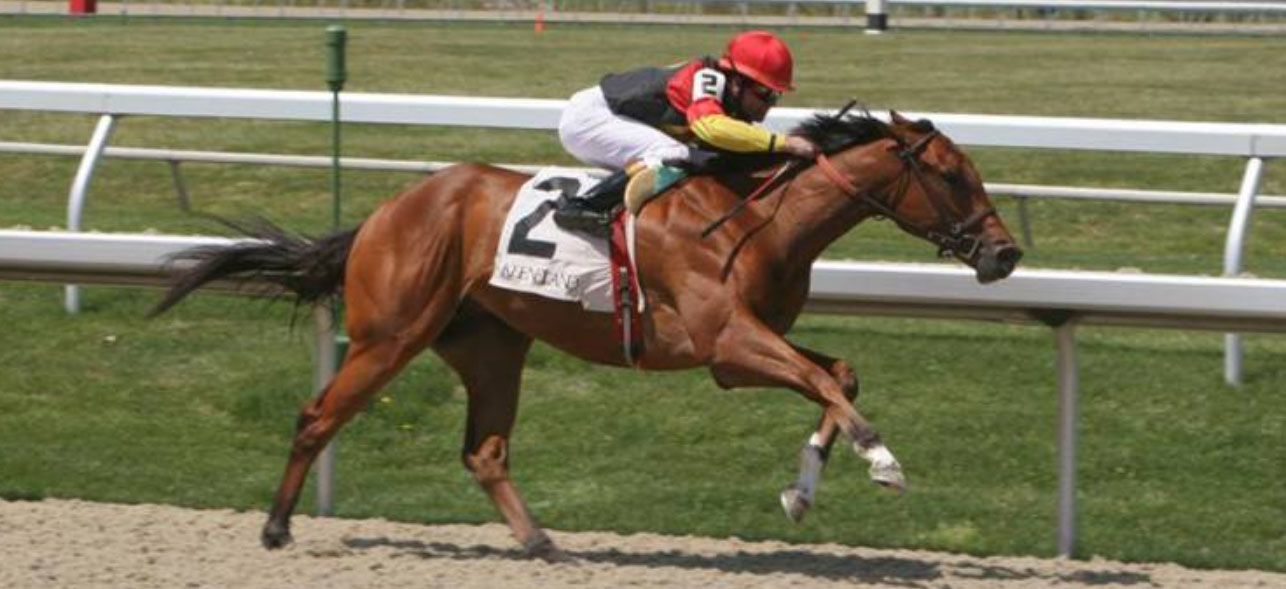
By Kentucky Equine Research Staff
The intestinal microbiome has drawn a great deal of attention over the past decade. Scientists have learned how powerful this collection of bacteria, fungi, and protozoa is and the far-reaching effects the microbiome has on a horse’s health. One of the latest studies examining the intestinal microbiome found that microbiome diversity early in a foal’s life may predict future racing performance.*
In the study, 52 Thoroughbred foals were followed from birth until three years of age. Spontaneously voided fecal samples from each foal were collected at nine different time points during the foal’s first year of life. Those samples underwent standard microbiome analysis based on 16S rRNA gene sequencing to identify the types and numbers of bacteria present in those samples, and the diversity was calculated.
“Diversity refers to the number of individual bacteria in each of the bacterial species found in the intestinal microbiome. Higher diversity is linked to improved health, particularly in terms of the immune system. Because over 70% of the body’s immune system is in the digestive tract, nutrition can influence the immune system by affecting the diversity of the bacteria in the gut,” explained Kathleen Crandell, Ph.D., a nutritionist for Kentucky Equine Research.
In humans, lack of microbiome diversity is linked to several chronic diseases, such as insulin resistance, inflammation, diabetes, digestive disorders, and allergies. Some of these conditions also occur in horses, prompting further research on the intestinal microbiome in both species.
As expected, diversity was low in fecal samples collected from very young foals. But that diversity increased until 60 days of age.
In terms of athletic performance, official rating, average prize money earnings, and average race placings were the three selected outcome measures. A significant, positive association between fecal microbial diversity at 28 days of age and all three racing outcomes was identified. Further, a higher relative abundance of Anaeroplasmataceae on day 28 was associated with higher official rating, and a higher relative abundance of Bacillaceae on day 28 was associated with higher race placings.
Because it is an observational study, it is important to appreciate these results do not indicate a causal relationship. For example, having a higher abundance of Anaeroplasmataceae in young foals (one month old) does not cause better racing outcomes. This study does, however, indicate that microbial diversity may predict athletic performance later in life.
“This is the first study to look at the relationship between early-life gut bacterial communities and subsequent athletic performance. This study is relevant because maximizing athletic potential is a key to successful racehorse breeding, which is an industry that creates jobs and has a wide-reaching economic impact on communities,” noted Crandell.
This new data, together with the existing body of knowledge of the microbiome in foals and horses, highlights the importance of a stable and diverse microbiome for maintaining health.
This research identified a “critical window” when the composition of the microbial community in the digestive tract can affect the immunity and future health of an individual.
“We need to look more closely at early-life interventions designed to enhance the health and future of athletic performance of horses. While we are still not able to select for the growth of certain bacteria that might confer specific health or performance benefits, we are learning more about diet modulation and manipulation to influence overall health of the digestive tract,” said Crandell.
She did note, however, that the first month of a foal’s life is when they are highly dependent on mare’s milk.
“Paying close attention to the mare’s diet and environment might have the most influence on building diversity in the foal’s microbiome and improving its overall health and long-term performance,” Crandell suggested.
Promoting microbiome diversity in the mare can be achieved by:
- Feeding a diet rich in structural carbohydrates such as pasture, high-quality hay, and alternative fiber sources like beet pulp;
- Feeding minimal amounts of starch-rich concentrates;
- Avoiding abrupt changes in the diet;
- Minimizing stress, such as frequent herd-dynamic changes and transportation;
- Avoiding excessive physical exertion;
- Avoiding anthelmintics in the first month postpartum; and
- Being conservative when using antibiotics whenever possible.
Reprinted courtesy of Kentucky Equine Research. Kentucky Equine Research is an international equine nutrition, research, and consultation company serving horse owners and the feed industry. Our goals are to advance the industry's knowledge of equine nutrition and exercise physiology, apply that knowledge to produce healthier, more athletic horses, and support the nutritional care of all horses throughout their lives. Learn more at KER.com.
There a more informative articles in our section on Health & Education.
*Leng, J., C. Moller-Levet, R.I. Mansergh, R.O. Flaherty, R. Cooke, P. Sells, C. Pinkham, O. Pynn, C. Smith, Z. Wise, R. Ellis, A. Cuoto-Alves, R. La Ragione, and C. Proudman. 2024. Early-life gut bacterial community structure predicts disease risk and athletic performance in horses bred for racing. Scientific Reports 14(1):17124.

































